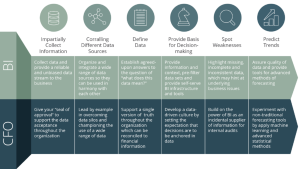
For nearly every start-up, marketing and advertising is a top priority. With so many different routes to choose from, however, how do you know which is best for your company? With diverse industries choosing many different tactics, understanding how to best market your enterprise can be difficult. “Online marketing” is a popular phrase, but what does it actually entail?
From SEO and content marketing to social media interactions and paid advertising, there are dozens of subsections of online marketing– and it’s up to you to decide which methods are right for your start-up.
Breaking Down Online Marketing
When it comes to online marketing basics, you can essentially break things down into four categories: search engines, content creation/distribution, social media and paid advertising. While your start-up’s clientele, products and services will dictate exactly how you should proceed, a solid online marketing strategy uses all of these efforts to a certain degree. Depending on the nature of your start-up, some strategies may be more lucrative than others.
It’s as much trial and error as anything else, but this guide will allow you to see the importance of each category and can help point you in a particular direction. Let’s analyze each of the four sections and provide some tips along the way.
Search Engines
Search engine optimization (SEO) is critical to converting Internet users into prospective clients. SEO is essentially the method by which your website and Internet pages get ranked on the major search engines. You typically do this by targeting specific keywords, developing quality content, and constantly analyzing and tweaking your structure.
In the words of Robert Ramirez, SEO analyst and former legal Internet marketing specialist, “Your best shot at early success is to capture the traffic in your city.” This means structuring your pages and content in such a way to include specific keywords. To figure out the right keywords, ask yourself what you would search for if you required your own start-up’s product or service.
With the evolution of local search over the past few months and years, Google has made it easier than ever to target based on location. Using the tools they provide, you can establish a business page with Google+ and automatically appear in local search results.
Content Creation/Distribution
In conjunction with SEO, you will want to develop a detailed content marketing plan. This includes actionable steps for creating and disseminating content to the masses. The Google search algorithms reward quality content. As such, your ability to consistently produce content that matters to your audience will help you gain visibility.
While most people imagine content as news articles and blog posts, it extends much further. Depending on your audience, your content marketing strategy may consist of visual elements like videos and pictures. Take, for example, this infographic by Ruvolo Law on divorce in America. It combines quality information with compelling visuals, and is a good example of content the internet (and its readers) likes.
Social Media
You can’t talk about internet marketing without including social media in the discussion. What was once considered a passing fad is now a stable opportunity for business growth. Social media is more influential than ever in marketing, and even impacts your start-up’s search engine rankings. Using platforms like Facebook, Twitter, LinkedIn, and Pinterest, you can humanize your firm and reach people where they are. You can create a community of people interested in your start-up – and these people can easily share your content.
For best results, ensure your social media profiles are fully developed, accurate, and consistently updated. You can then use these sites as forms of content distribution – such as news outlets. One of the best aspects of social media is easy analysis of performance and ROI.
On your social media page, you may choose to not just post about your own business updates. Consider what people interested in your start-up may also be intrigued by. If your start-up is in the technology sector, sharing interesting and fun tech news is a great way to get fans to share your posts.
Paid Advertising
Lastly, the fourth category refers to paid advertising. Much like traditional print advertising, paid internet advertising allows you to reach people when and where you want. When using Facebook Advertising or Google AdWords, you will typically operate on a pay per click model – or PPC. Under this model, you only pay the advertiser when your ad is clicked. This makes it a very cost-effective form of marketing, ensuring you don’t waste money when no value is being received.
Before starting any paid advertising strategy, it’s important to understand costs can add up quickly when you are presenting your ads to hundreds of thousands (and possibly millions) of people. This is where the budgeting feature comes into effect. All paid advertising channels allow you to set hourly, daily, weekly, or monthly budgets. In essence, once you reach a certain threshold, your ad is discontinued until the next designated period starts. Use these to your advantage until you get a good idea of your ROI.
It’s best to not start a PPC strategy without expert advice.
Don’t Enter Blindly
While some people say the best strategy is to dive in head first and not look back, that’s not ideal when it comes to internet marketing. For optimal results, take it slow and learn how each moving part works from the bottom up. Once you have a firm foundation of understanding, you’ll be able to make smarter decisions and better investments for your business.
(423)
Report Post





